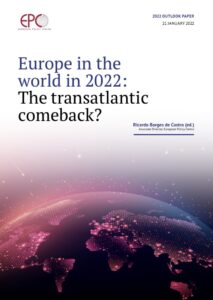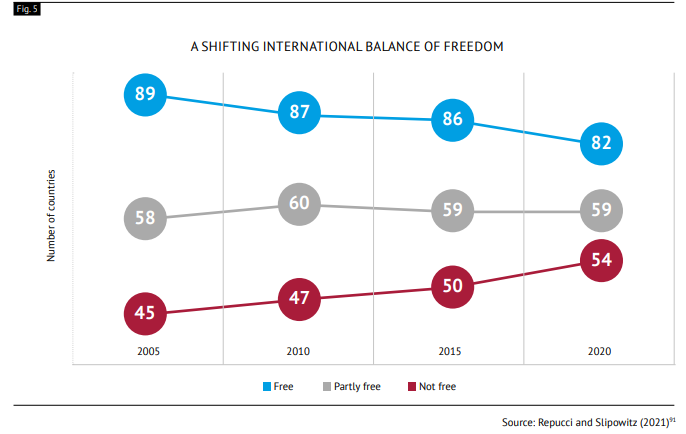 As democracy backslides globally, the European Union should expand its Global Human Rights Sanctions Regime to include more countries, companies and individuals that commit severe human rights violations, says a new report.
As democracy backslides globally, the European Union should expand its Global Human Rights Sanctions Regime to include more countries, companies and individuals that commit severe human rights violations, says a new report.
2022 will continue to look dire for human rights around the world, according to Europe in the world in 2022: The transatlantic comeback?, edited by Ricardo Borges de Castro, Associate Director of the European Policy Centre. The COVID-19 pandemic was not only a global health crisis but also allowed a sustained attack on democratic principles and human rights, which have been declining for the last 15 years (see Fig. 5 below). As the pandemic is still ongoing, the use of COVID-19 restrictions to crack down on civil society and democratic processes is likely to continue in some parts of the world, it predicts:
The EU must also adapt to profound structural developments within global geopolitics, such as the shifting nature of power, the return of strongman politics, growing involvement from non-state actors and the waning separation between domestic and external policies. Global trends like climate change, digitalisation, changing demographics, and a worldwide decline in democracy and freedom complicate matters further and will have a major influence on EU policymaking. RTWT








